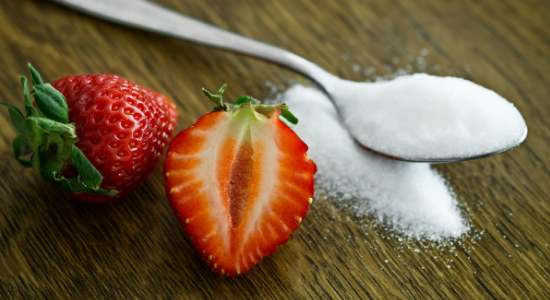If you're like most people, you crave sweets from time to time, so it probably seems ideal that you can get that sweet flavor from foods and beverages without the additional calories by using products like Splenda. But is it worth saving the calories from sugar to consume these artificial ingredients?
We keep hearing about the detrimental health impacts of regular white sugar, so Splenda seems like a great substitute. However, the side effects of Splenda are dangerous and actually not worth the few calories you are giving up by passing on sugar.
In fact, some experts claim that Splenda has more in common with pesticides than it does with actual real food. Here, we will talk about some of the dangers of Splenda and some better options for low-calorie sweeteners for food and drinks.
“Low-sugar” is a buzzword right now, especially since we realized “low-fat” actually made people gain weight and become less healthy. However, we also know that sugar should be avoided, so what can you do if you want to cut out sugar to lose weight? Choose an artificial sweetener like Splenda, aspartame, or saccharin?
Splenda is made of sucralose, which is a synthetic compound used in over 4,500 products. The molecule is made of sugar, but three of the hydroxyl groups in the sugar molecule have been replaced by chlorine atoms.
Once sucralose gets to the intestines, the body doesn't recognize it as food, so it clears it out by digesting it. This leads to side effects such as altering blood sugar and insulin levels, migraines, a decrease in healthy bacteria in the gut, and an increased chance of developing cancer.
What’s more, studies have shown that high doses of sucralose can lead to shrunken thymus glands, enlarged livers, and kidney diseases in rodents. It is important to also note that Splenda does not just contain sucralose, it also contains dextrose and sometimes maltodextrin which both present health concerns of their own.
Why are sugar substitutes unhealthy?
Because they are food additives, artificial sweeteners don’t go through the same FDA safety trials that pharmaceuticals have to go through. The testing of sugar substitutes is largely funded by the food industry, who have an interest in the results. These situations can lead to misleading claims that are confusing to the people who are consuming the product.
However, it is well-known that of the chemicals that make up artificial sweeteners are known hazards. Some people experience the side effects worse than others, depending on one's biochemistry, but they are not healthy for anyone. Manufacturers want consumers to accept the idea that our bodies won’t absorb much of these compounds, but what if that is not true?
When deciding whether or not you should consume artificial sweeteners, it is best that pregnant women, children, and teenagers avoid them due to the possible irreversible cell damage. If you do consume them, pay close attention to how your body feels and your cravings. If you keep track of your response to artificial sweeteners, you may be surprised that consuming them actually makes you crave sweets more.
This is because when you eat something that tastes sweet, your body thinks it's sugar and releases insulin to counteract that. However, that sugar never actually gets into your system because your small intestines realizes that it is not, in fact, sugar and it releases it from your system. This leaves the insulin still waiting to get sugar, so you continue to crave it.
Why is real sugar a problem?
Sugar is a perfect ingredient for food manufacturers because it’s cheap, people find it to be delicious, and it adds bulk and texture to food products. There is sugar in almost everything and its empty calories replace real nutrients, so while you can eat it and gain weight, your cells are still starving.
According to the US Department of Agriculture, the average American consumes over four times as much sugar per day than the recommended amount. Sugar is addicting and it becomes a habit that is exacerbated by stress because stress makes your body need immediate energy. This may be causing you to put your body through the binge-crash cycle many times a day.
Instead of using sugar or artificial sweeteners, use natural sweeteners like raw honey, dates, pure maple syrup, and ripe bananas. Your body can use these foods to its benefit rather than hurting your health in the long run.


